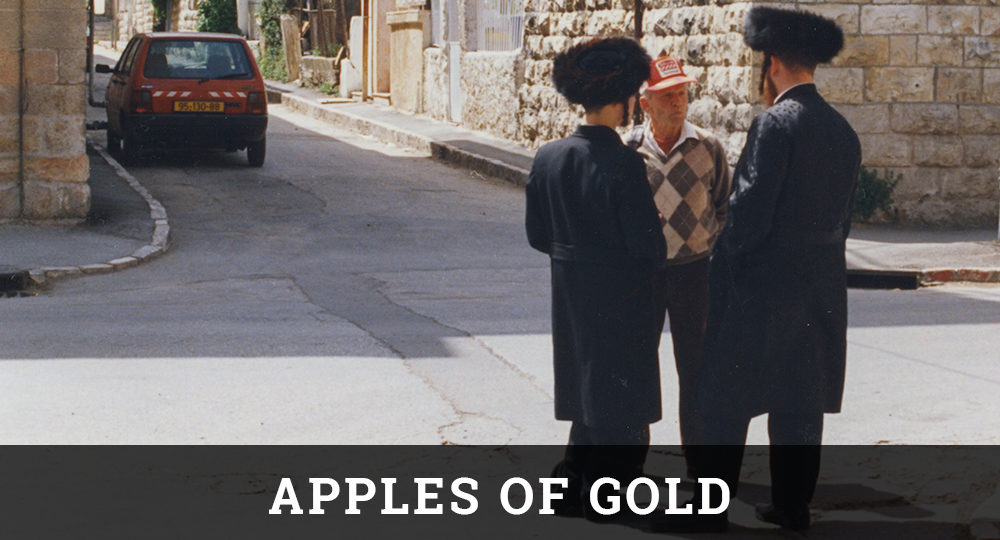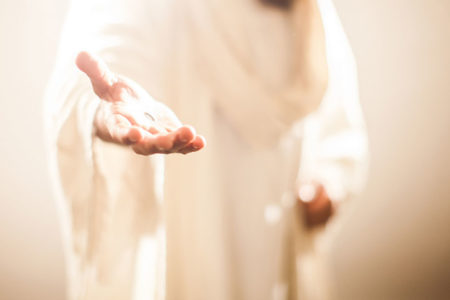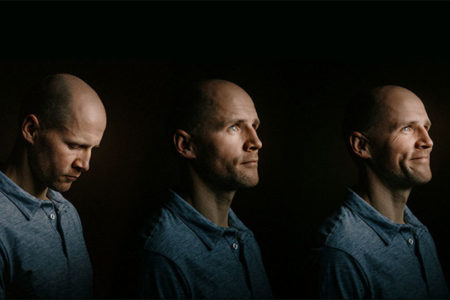Apples of Gold Nov/Dec 2019
This week we received a phone call that a friend of our family was very sick in the hospital, so my wife and I went to visit her. Visiting a hospital is different from going to a wedding. Instead of hearing shouts of joy, you hear sounds of pain.
On our recent visit, I found that even a place filled with such sadness and pain does not stop some people from looking for ways to make money. A young rabbi came to pray with the sick lady in the bed next to our friend. “I will say a special prayer for you, and you will feel much better,” he told her.
“I will be very happy if you can take away my pain,” she replied.
“You should be happy because you are privileged to have a kohayn pray for you. If a kohayn gives you a blessing, you will be written in the Book of Life,” he said. A kohayn is a member of the Jewish priestly class.
He began his priestly benediction and prayed for her. I quietly watched and listened, waiting for an opportunity to speak. When he finished, he asked her for payment.
The sick lady was shocked. “You come here like an angel of peace, but you are an angel of death!” she told him. He became extremely unhappy.
Then I saw my opportunity. “As a teacher,” I told him, “you should know that it is a very big mitzvah (good deed) to visit and pray for the sick, but not in the way you are doing here. How can you ask this sick old lady to pay you for a prayer?”
More relatives had entered the room to visit, and they agreed with me. “Many come and give blessings for the sick, but we do not think they ask for payment,” one said.
“You come to this woman in nice camouflage,” I told the rabbi. “I have come here to pray quietly for my sick friend—unlike you, who pray loudly for all to hear. The Lord knows our hearts. You try to sell blessings like one sells potatoes at the market. And who buys such blessings from you? Poor people who do not know better. It is my obligation as one who believes in the living God to warn them about people like you.”
Then I showed him Ezekiel 33:10–11 from my Bible, which I always carry with me:
Therefore you, O son of man, say to the house of Israel: “Thus you say, ‘If our transgressions and our sins lie upon us, and we pine away in them, how can we then live?’” Say to them: “As I live,” says the Lord GOD, “I have no pleasure in the death of the wicked, but that the wicked turn from his way and live. Turn, turn from your evil ways! For why should you die, O house of Israel?”
He became extremely suspicious. “Who are you that you take the Bible with you? Are you one of those big troublemakers—Reform or Conservative Jews?” he demanded.
“You see, I believe in the Word of the living God, not in the many fictitious stories and superstitions you are trying to sell here,” I replied.
Everyone listened intently to our conversation. “Prayer has great power if it comes from the depths of the heart. But you pray loudly with all of your voice, then ask sick people to pay you. So where is your great mitzvah?” I asked.
“Whoever begins a good deed should finish it,” one added, agreeing with me.
“You do not cover your head. How can you speak about prayer and faith when you do not look like a rabbi?” someone asked me.
“Proverbs 15:3 says, ‘The eyes of the LORD are in every place, keeping watch on the evil and the good.’ So it is my obligation before the Lord to do good by sharing His truth. I do not come with a big stack of books, but with one small book—the Holy Bible,” I said.
The rabbi must have received wings and flew away because he vanished from our conversation. Soon the doctor entered the room, and our conversation came to a close. I am glad those in the hospital room that day heard about the truth and where they can find it. That is what is most important.
The Friends of Israel Archives,
February 1999








Thank you Israel My Glory!!!
You are a blessing!! 🙂